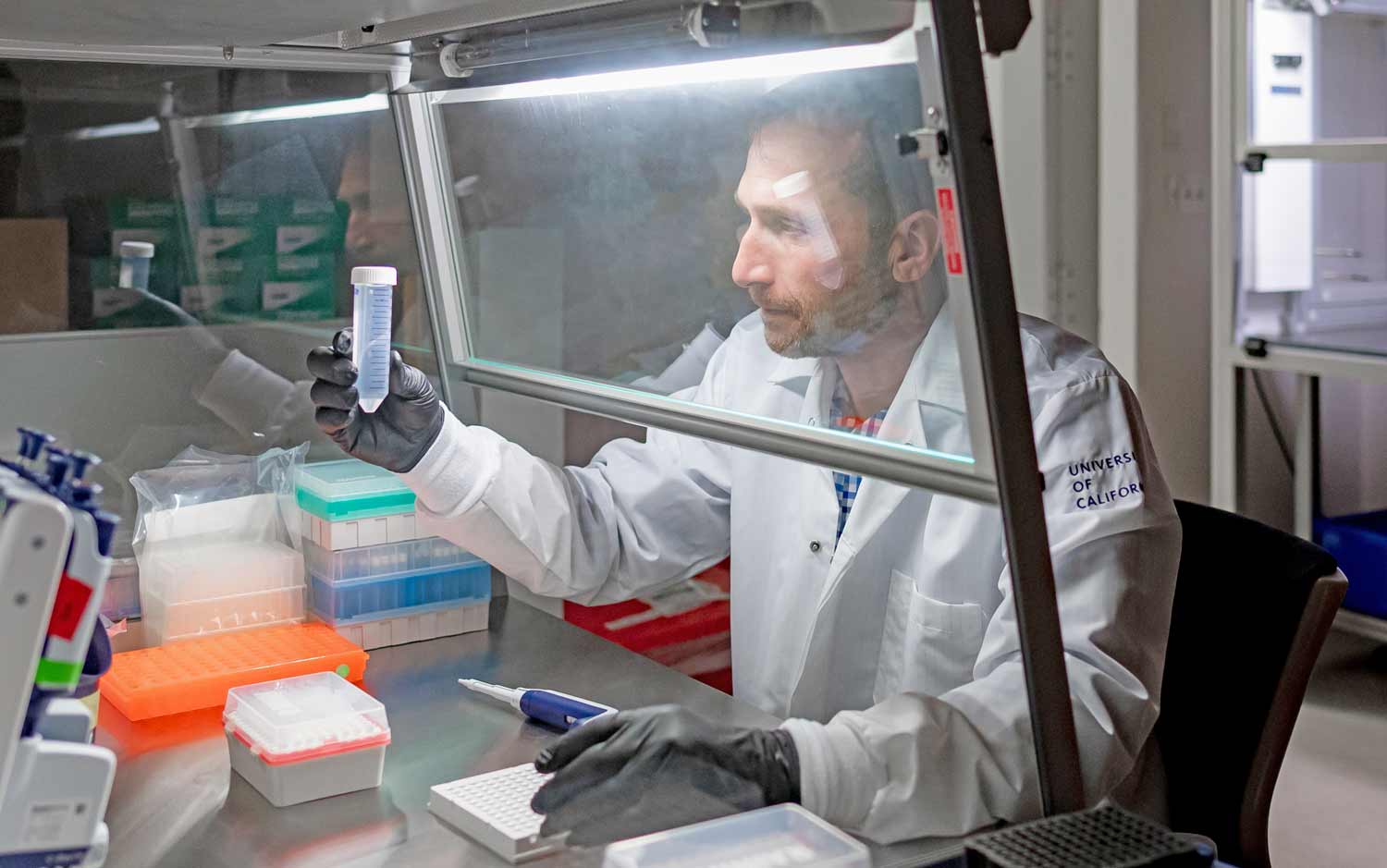Lupus is a "classic" autoimmune disease.
It causes the immune system's first-line viral defenses, known as interferons, to attack the body. Nearly every organ is at risk, leading to conditions like kidney and heart disease.
But unlike many other autoimmune or chronic illnesses, lupus can improve as patients reach their 60s and 70s.
"I see my younger lupus patients in their 20s, 30s, and 40s every few months, monitoring them closely for signs of severe disease, but many of my older patients just once a year to touch base," said Sarah Patterson , MD, assistant professor of medicine in the division of rheumatology at UCSF. "If patients make it through those risky decades, they sometimes see a dramatic improvement."
Now, Patterson and colleagues have published a study in Science Translational Medicine that reveals how this works.
By analyzing blood samples from patients across the age spectrum, the team discovered that aging turns down the activity of certain immune genes in people with lupus, leading to fewer interferons and other inflammatory proteins in the body.
The study found that in healthy adults, inflammation-related genes and proteins rose slowly over the years, a process that has been dubbed "inflammaging." In patients with lupus, however, the expression of these genes and proteins were abnormally high in mid-life but decreased as the decades went by.
"Inflammaging seemed to be reversed in the lupus patients," said Chaz Langelier , MD, PhD, associate professor of medicine at UCSF and senior author of the paper. "But it wasn't fully reversed. The lupus patients still had a greater level of inflammatory signaling compared to healthy adults in older age."
That reversal reflected what Patterson has seen in her patients - a return to something approaching healthy older age.
Next, the team intends to test whether drugs that block interferons are more or less effective in lupus patients at different ages. They also hope to extend the approach to understand other inflammation-related conditions, such as rheumatoid arthritis, COPD, and atherosclerosis.

Authors: Other UCSF authors are Rithwik Narendra, Hoang Van Phan, Ana Almonte-Loya, Emily C. Lydon, MD, Christina Love, Michiko Shimoda, PhD, Padmini Deosthale, MS, Lenka Maliskova, Walter Eckalbar, PhD, Gabriela K. Fragiadakis, PhD, Jinoos Yazdany, MD, MPH, Maria Dall'Era, MD, Patricia Katz, PhD, Chun Jimmie Ye, PhD, and Marina Sirota, PhD. For a complete author list see the paper.
Funding: This work was funded by the National Institutes of Health (R01 AR069616, K23AT011768, P30 AI027763), the US Centers for Disease Control and Prevention (CDC), and the Chan Zuckerberg Biohub.






